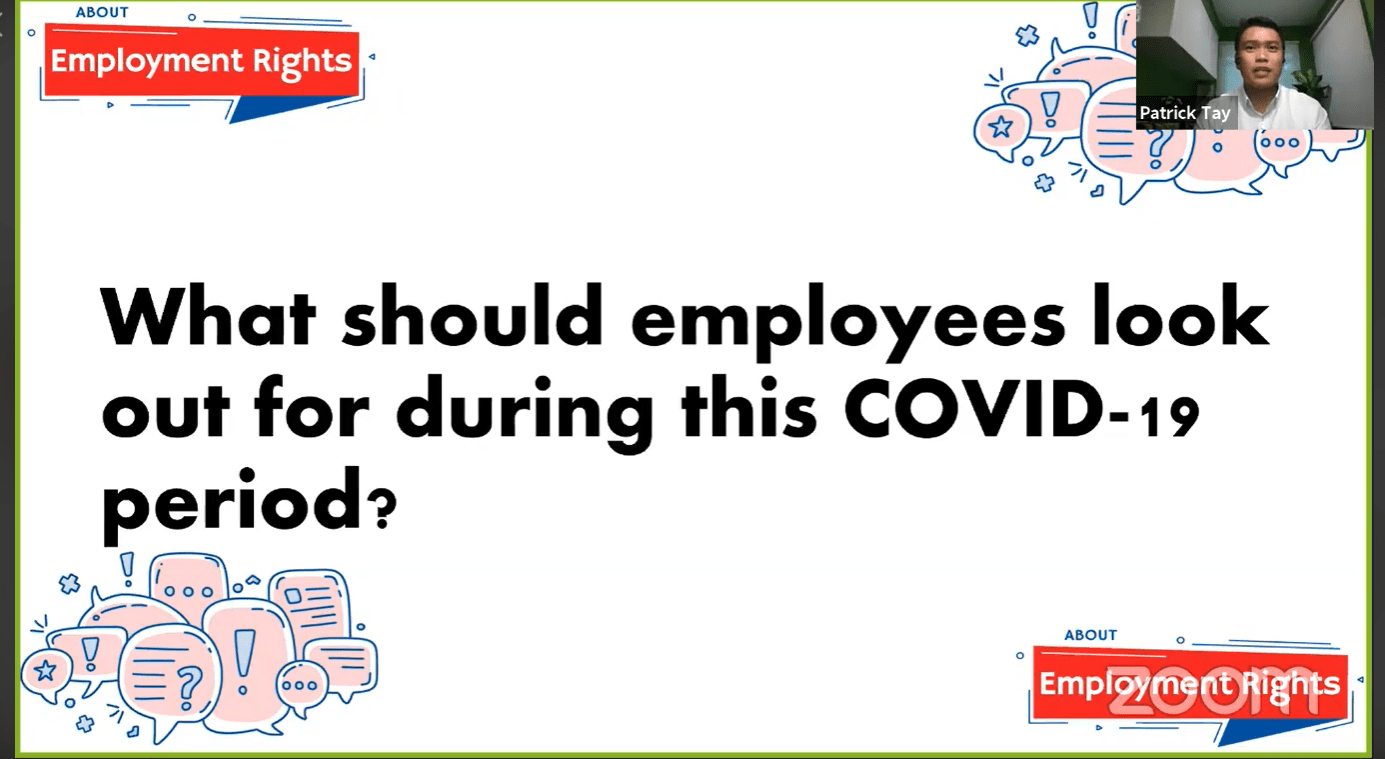TL;DR – We can approach our union and government for assistance if we are wrongfully treated.
The Covid-19 pandemic has not only disrupted our way of life, but also the way we work.
With non-essential businesses forced to close or fully telecommute, and revenues affected, our livelihoods have never been more at stake since the British Army moved out of Singapore in the 1970s.
The Asian Financial Crisis and SARS crisis were largely Asia-centric, while the Global Financial Crisis impacted the banking and financial sector. None of these crises meant a world-wide stall in travel, disruption of global supply chains, global pandemic and a huge economic slowdown that affects almost every sector and country in the world.

The tripartite partners (unions, government, employers) have called for retrenchment to be the last resort. The government has also announced a fourth Budget (Fortitude Budget) which strengthens support for employers to keep workers’ jobs with extended Jobs Support Scheme, extra rental relief and financing support.

With this in mind, what employment rights do workers have during and after Covid-19 Circuit Breaker?
I tuned in to NTUC Assistant Secretary-General Patrick Tay’s Live Talk on Employment Rights to understand more.
Can my employer change my working hours and salary?

Patrick Tay says employers should not unilaterally make any change in working hours and salary without the employee’s consent. Employers must consult the unions (if any) and employee, and both parties need to acknowledge.
However the employee needs to take into account factors like whether the business can survive, whether his job will be at risk etc.
What if I am unfairly terminated or dismissed for reasons like ‘poor performance’, or am ‘forced’ to resign?


Employers cannot dismiss employees for poor performance without notice. Employers also need to provide evidence of ‘poor performance’. Employees who are union members can approach union for advice.
If employers give ‘poor performance’ as an excuse to let go of workers instead of retrenching (so that the employer can escape giving retrenchment benefits), or the employee feels that he has been unfairly treated and targeted, the union can file an appeal to MOM for the employee to be reinstated.
If you don’t have a union in your company, or are not a union member, you can file a claim for reinstatement at the Tripartite Alliance for Dispute Management (TADM). Claims that cannot be solved by TADM will be referred to Employment Claims Tribunal.

What if I was terminated, but I was actually retrenched?

With the extended Jobs Support Scheme, retrenchment should be the last resort. But if the employer really cannot help but make jobs redundant, the employer should pay retrenchment benefits.
Retrenchment benefits should be paid in accordance with the employment contract or collective agreement. If there is no such prior agreement, tripartite advisories state that retrenchment benefits should range from two weeks to one month’s salary per year of service (which can be more than the one month of notice pay especially if the worker is a long-service employee).
Patrick Tay has spoken out against employers that disguise retrenchments to avoid paying retrenched employees their rightful retrenchment benefits.
He wrote on a recent ST article “Sadly, some employers get away with it, perhaps because workers are not aware of their rights, or fear to take action. To make it foolproof, some employers even provide notice pay and do not give any reasons for the contractual termination so as not to be challenged, especially in a non-unionised environment.”
He suggested that an interim measure, such as blacklisting by the Ministry of Manpower and withholding of government funding – for example, JSS – could potentially stop the trend of unfair employers disguising retrenchments.
What if my workplace doesn’t have sufficient safe distancing measures?

When workplaces reopen, workplaces need to adhere to Safe Management Measures by MOM.
If your employer refuses to practise safe management measures even after you raise up to them, you can approach your union and/or report to MOM via Snapsafe, as this is a workplace right.
Check out these useful links

